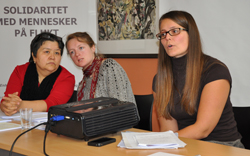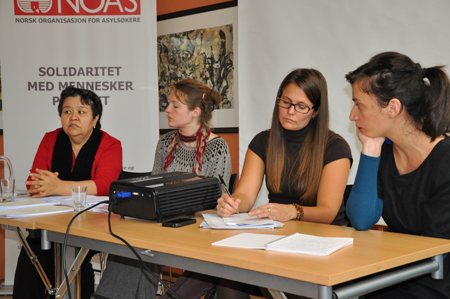Tika Tsertsvadze from the Brussels-based think-tank EUCAM in her presentation on EU – Uzbekistan relations was concerned that the EU wasted what they had of leverage when they lifted the sanctions imposed after the Andijan-massacre in 2005, with Uzbekistan having met, partially, only one of the necessary benchmarks.

Lene Wetteland from the NHC gave a general overview of the dismal human rights situation in the repressive country, where any civil society activity is a danger, there is no free media and the prisons are filled with religious believers, journalists and human rights activists. International organisations are denied presence in the country and little information is shared, making the NHC’s work for development of civil society very challenging.
In the debate moderated by NOAS Secretary General Ann-Magrit Austenå, Mutabar Tajibayeva shared her particular concern with the people that are forced to leave Uzbekistan whether it is because of poverty or persecution, and are deported to Uzbekistan after rejection of their asylum claims in Europe. – Through close cooperation between local mahalla committees and the police, the authorities have full overview over every citizen’s presence or absence from his registered residence, and will take any measures to get the information they want, she warned.
